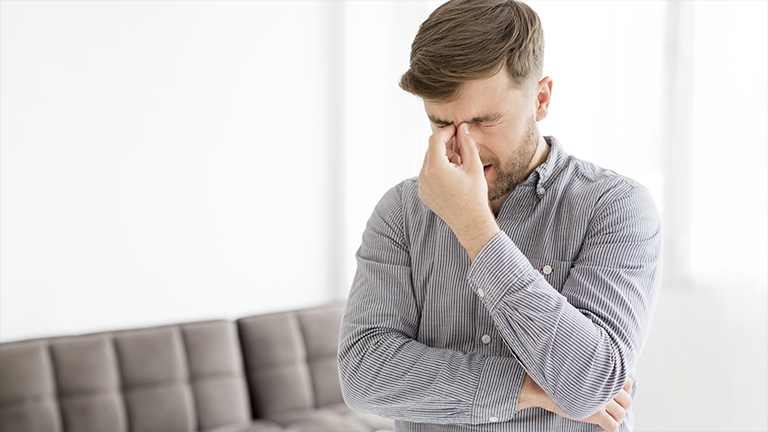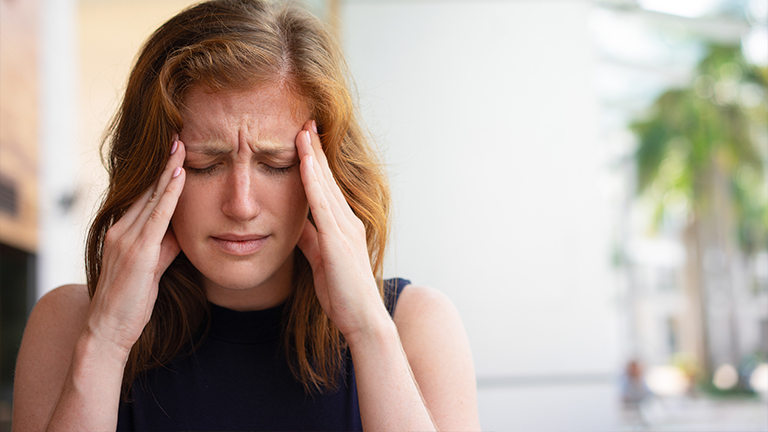Feeling lightheaded can be unsettling and sometimes alarming. You might experience a sense of dizziness, imbalance, or the feeling that you might faint. While occasional lightheadedness is common, frequent episodes may indicate an underlying health issue. In this article, we explore the causes, symptoms, remedies, and prevention of lightheadedness.
What Does Feeling Lightheaded Mean?
Being lightheaded refers to a sensation of faintness or wooziness. Unlike true vertigo, which makes the room feel like it’s spinning, lightheadedness often feels like your brain isn’t getting enough oxygen. People describe it as floating, drifting, or unsteady feelings, often triggered by changes in posture, dehydration, or anxiety.
Understanding why you feel lightheaded is key to finding relief and preventing future episodes.
Common Causes of Lightheadedness
Several factors can contribute to lightheadedness, ranging from mild lifestyle-related causes to serious medical conditions.
1. Dehydration
Not drinking enough water can reduce blood volume, lowering blood pressure and causing lightheadedness. Signs of dehydration include dry mouth, fatigue, and dark-colored urine.
2. Low Blood Pressure (Hypotension)
A sudden drop in blood pressure, especially when standing up quickly, can make you feel dizzy or lightheaded. This is known as orthostatic hypotension.
3. Low Blood Sugar (Hypoglycemia)
Skipping meals or having irregular eating patterns can drop blood sugar levels, leading to feelings of faintness and lightheadedness.
4. Anxiety or Panic Attacks
Anxiety triggers a surge of adrenaline, which may lead to rapid breathing, a racing heart, and lightheaded sensations. Chronic stress and panic disorders often contribute to ongoing lightheadedness.
5. Medication Side Effects
Certain medications, such as blood pressure drugs, sedatives, or antidepressants, can cause dizziness or lightheadedness as a side effect. Always consult your doctor if you suspect medication is the cause.
6. Anemia
Low levels of hemoglobin in the blood mean less oxygen is delivered to your brain, often causing fatigue and lightheadedness.
7. Inner Ear Problems
Conditions like vertigo, vestibular neuritis, or Meniere’s disease affect balance and can sometimes feel like lightheadedness, though true spinning dizziness is more common.
Lightheaded vs. Dizziness: Difference?
Many people confuse lightheadedness with dizziness or vertigo:
- Lightheadedness: Feeling faint, woozy, or about to pass out.
- Dizziness: A sense of unsteadiness or losing balance.
- Vertigo: A spinning or rotational sensation.
Understanding the difference helps identify potential causes and treatments.
When Lightheadedness Happens
1. Lightheaded After Standing Up
Known as orthostatic hypotension, this occurs when blood pressure drops suddenly on standing. You may feel faint or wobbly for a few seconds.
2. Lightheaded After Eating
Postprandial hypotension occurs after meals, particularly in older adults. Blood flow shifts to aid digestion, sometimes reducing brain oxygen levels and causing lightheadedness.
3. Lightheaded With Nausea or Weakness
Feeling lightheaded along with nausea, sweating, or weakness may indicate dehydration, low blood sugar, or an infection.
Lightheadedness and Anxiety: The Mind-Body Connection
Stress, panic attacks, and anxiety disorders are common triggers of lightheadedness. Rapid breathing (hyperventilation) reduces carbon dioxide in the blood, leading to dizziness and fainting sensations. Mindfulness, deep breathing, and professional therapy can help reduce anxiety-related lightheaded episodes.
Home Remedies & Quick Relief for Lightheadedness
- Sit or lie down immediately to prevent falls.
- Hydrate: Drink water or electrolyte solutions.
- Eat a snack: Preferably with protein or complex carbs if low blood sugar is suspected.
- Deep breathing exercises for anxiety-induced lightheadedness.
- Stand up slowly to prevent orthostatic hypotension.
- Limit alcohol and caffeine which can trigger dehydration and blood pressure fluctuations.
When to See a Doctor About Lightheadedness
Seek medical attention if lightheadedness is:
- Persistent or worsening
- Accompanied by chest pain, shortness of breath, or fainting
- Caused by head injury
- Linked with neurological symptoms like numbness, slurred speech, or vision problems
A healthcare professional can run tests for blood pressure, blood sugar, anemia, or heart conditions to identify the root cause.
Prevention Tips to Reduce Lightheaded Episodes
- Stay well-hydrated throughout the day.
- Eat balanced meals regularly to maintain blood sugar levels.
- Avoid sudden position changes; stand up slowly.
- Manage stress and anxiety through meditation, yoga, or therapy.
- Review medications with your doctor for potential side effects.
- Include exercise to improve blood circulation and cardiovascular health.
Conclusion: Staying Healthy & Knowing When to Seek Help
Feeling lightheaded is common but shouldn’t be ignored, especially if it happens frequently. Most cases are caused by dehydration, low blood sugar, or temporary blood pressure changes, but some may indicate serious health conditions. By understanding the causes, practicing prevention, and seeking timely medical advice, you can stay safe, healthy, and reduce episodes of lightheadedness.


